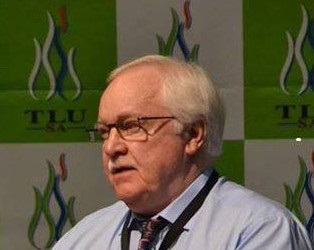“The assumptions made by various economists and asset managers after the announcement of the economic growth rate for the second quarter two weeks ago1) that the government's budget deficit and its debt burden in relation to the Gross Domestic Product (GDP) will be reduced have now been proven to be unrealistic,” says Fanie Brink, an independent agricultural economist.
The assumptions that the “budget deficit for this year will only be 7% compared to the 9,3% and that the government's debt burden in relation to the GDP may be closer to 70% than the 88% budgeted for in February can now be totally ruled out.
These assumptions were based on the higher international metal prices that increased the profitability of the mining industry and therefore the government's revenue but that it will not be accompanied by increases in government spending.
The National Treasury has informed the parliamentary committees on fiscal and economic issues last week that the “government’s fiscal stance has shifted from one of consolidation to expansion.” The “extra spending will be funded by the tax bonanza arising from the commodity boom with its proposal to allocate R33 billion for Covid-19 relief and to address the consequences of the recent unrest and will not affect the fiscal framework.”
The Parliamentary Budget Office which also provides input to the committees argued that “the Treasury’s failure to adopt an expansionary fiscal stance in the first place contributed to the social insecurity and poverty that underlay the recent looting and destruction that devastated KwaZulu-Natal and Gauteng in July this year. The government will inevitably have to use this windfall of the higher international metal prices to reduce the rising poverty, hunger and unemployment to try to deal with an outbreak of any further riots as far as possible. Several years of fiscal consolidation have had a cumulative negative impact on employment, investment and economic growth. The fiscal choices made had increased social and political instability. The fiscal framework had to provide for increased spending.”2)
Brink said this is the problem with socialism as socialists believe that more spending, budget deficits and debt can create “employment, investment and economic growth” which is clearly economic illiteracy and incompetence! The “failure to adopt an expansionary fiscal stance” was not the primary reason for the “social insecurity and poverty” and the resulting “looting and destruction” but the socialist ideology of the government that irreversibly demolished economic growth. The very clear results were the widening gap between the revenue and expenditure of the government that was responsible for the increasing budget deficits and debt, higher poverty, famine, unemployment and inequality.
The new Minister of Finance, Enoch Godongwana, however, said only a week after he was appointed when he informed the investment community that “nothing is really going to change in terms of South Africa's fiscal position and commitment to debt stabilisation.”
He also said during the last party lekgotla that the “extremely difficult financial reprioritisations and policy considerations must be agreed upon by everyone in the government if the government wants to meet its existing spending commitments, wants to stabilise the fiscus and avert a full-scale financial crisis.”
These latest developments shows very clearly that the government cannot and will not be able to stabilise its destructed fiscal situation which will create “a full-scale financial crisis” as there is absolutely nothing that indicates that it will improve especially in the absence of any economic growth!
As the former editor of the Business Day and Financial Mail, Peter Bruce, has said: “… our core problem isn’t corruption or incompetence, though they are the moving parts of the neon sign at the entrance to SA. The problem is plain poor policy and the ANC’s absolute inability to understand how to turn one rand into two rand. We chase transformation or reducing inequality at the expense of growth or arguing that growth wouldn’t fix them. Corruption doesn’t lead to poverty and the kind of misery South Africans suffer. Very bad economic policies do.”
The Austrian-British economist, Friedrich von Hayek, has said: “If socialists understood economics, they wouldn’t be socialists.”
Fanie Brink, Independent Agricultural Economist

1) “Growth prospects are unrealistic”
https://farmingportal.co.za/index.php/farming-news/south-africa/6868-growth-prospects-are-unrealistic-south-africa
2) “Expansionary fiscal stance ushered in with new relief spending
https://www.businesslive.co.za/bd/national/2021-09-15-expansionary-fiscal-stance-ushered-in-with-new-relief-spending/












